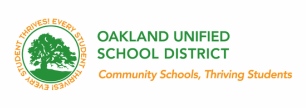|
|
|
Protocols are methods of pulling data from various sources in order to make sense of it. Below you will find sample Data Protocols that we've developed or that have been shared with us within our district.
Principles of Data Use and Safety Regs
Root Cause Analysis Primer
DATA PROTOCOLS . . . from A - ZNational School Reform Faculty downloadable protocols. Great Resource!
Click HERE Abbreviated Protocols GuideClick HERE
5 Why's Protocol: Root CauseSample #1: How to Use 5 Why's
Sample #2: 5 Why's Problem Solving Tool Sample #3: Example 5 Why's Protocol Sample #4: 5 Why's Template Sample #5: 5 Why's Cause Analysis Form Data observation & at risk lists
data analysis protocol
Guiding Questions Common Assessment Data
Looking Back Instructional Planning
Local Assessment Analysis ELA-Math
Creating Student Learning Objectives
ATLAS PROTOCOL
Data TEAM TOOLKIT
|
MUST SEE VIDEO from Dr. Elizabeth City of the Harvard Graduate School of Education, as she talks about the use of data protocols to analyze data.
Effective Use of Data Assumptions
...from Nancy Love's book Data Coaches Guide to Improving Learning for All Students Download article HERE
ASSUMPTION 1: Making significant progress in improving student learning and closing achievement gaps is a moral responsibility and a real possibility in a relatively short amount of time—two to five years. It is not children’s poverty or race or ethnic background that stands in the way of achievement; it is school practices and policies and the beliefs that underlie them that pose the biggest obstacles.
ASSUMPTION 2: Data have no meaning. Meaning is imposed through interpretation. Frames of reference—the way we see the world—influence the meaning we derive from data. Effective data users become aware of and critically examine their frames of reference and assumptions. Conversely, data themselves can also be catalysts for questioning assumptions and changing practices based on new ways of thinking.
ASSUMPTION 3: Collaborative inquiry—a process where teachers construct their understanding of student-learning problems and invent and test out solutions together through rigorous and frequent use of data and reflective dialogue--unleashes the resourcefulness and creativity to continuously improve instruction and student learning.
ASSUMPTION 4: A school culture characterized by collective responsibility for student learning, commitment to equity, and trust is the foundation for collaborative inquiry. In the absence of such a culture, schools may be unable to respond effectively to the data they have.
ASSUMPTION 5: Using data itself does not improve teaching. Improved teaching comes about when teachers implement sound teaching practices grounded in cultural proficiency—understanding of and respect for their students’ cultures—and a thorough understanding of the subject matter and how to teach it, including understanding student thinking and ways of making content accessible to all students.
ASSUMPTION 6: Every member of a collaborative school community can act as a leader, dramatically impacting the quality of relationships, the school culture, and student learning.
| ||||||||||||||||||||||||||||||||||||||||||||||||||||||||||||


